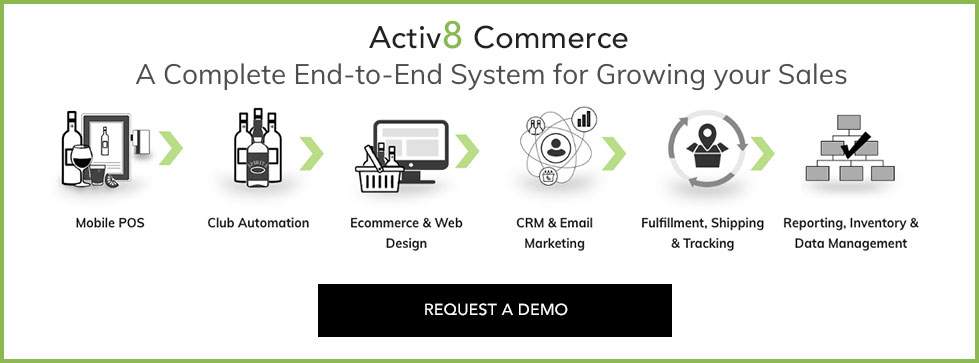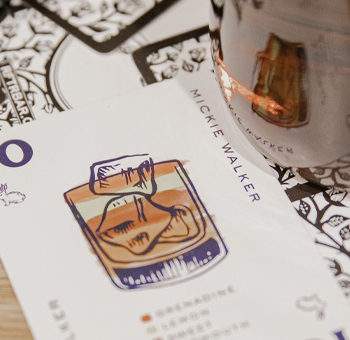How Wine Clubs Are Helping U.S. Wineries Stay Afloat
When Brianne Day, winemaker and owner of Day Wines in Oregon, closed her winery to guests in mid-March, she was afraid of what the future might hold for her business and her staff. As shutdowns to prevent the spread of the novel coronavirus pandemic swept across the country, shuttering tasting rooms and restaurants, the business for American winemakers changed overnight.
“I didn’t see how a small winery like mine, which depends so much on restaurant sales, was going to make it,” says Day. Like many smaller producers who don’t occupy as much retail shelf space as larger wineries with national distribution channels, Day worked to build her direct-to-consumer sales by offering free shipping on six bottles or more.

Now, nearly eight months into the pandemic, most wineries have found a new rhythm in the ways they sell wine and conduct virtual or on-premise tastings. Many say survival wouldn’t have possible without one thing: their wine clubs.
“Ours certainly helped keep the lights on during the early days of the pandemic,” says Mike Beneduce of Beneduce Vineyards in Pittstown, New Jersey. Wine club members, he says, are “our best evangelists, collecting our wines and going out to spread the word about them.”

Down the road at Unionville Vineyards, general manager John Cifelli steadily worked to build a loyal wine club following over the past four years, which he says, “paid a fantastic dividend when Covid hit.” Without any prompt from the winery, Unionville’s club members showed up to support the company by purchasing other wines in addition to their regular allotments.
As the pandemic progressed and unemployment rates soared, some wine clubs even gained members at a rate faster than usual. “We rarely have people drop out of our wine club—typically only because ‘I lost my job’ or ‘I’m dead,’” says Randy Hester, winemaker/owner of Texas’s C.L. Butaud. “So it was very cool to see growth in a time when so many things are going down.”
“This year, our wine club is the life raft that’s going to get us to shore.”—Martha Stoumen, Martha Stoumen Wines
Like buying a CSA that supports a farmer in advance of their growing season, committing to a winery’s wine club allows a small producer to craft new wines vintage after vintage. It also helps the winery forecast its finances for the next quarter, something that all businesses have been eager to do in 2020.
“This year, our wine club is the life raft that’s going to get us to shore,” says California winemaker Martha Stoumen of her namesake Martha Stoumen Wines, who, in addition to the pandemic, has endured an unprecedented 2020 wildfire season. “Having a wine club is incredibly important. When all other things are variable, we can count on this income coming in twice a year.”

New wine club shipments are typically released two or three times a year, and most wineries offer their members complimentary tastings, additional discounts on other purchases, and invitations to members-only pick-up parties and events.
While those added perks are nice, most members stay for what they find within the club.
Belonging to a wine club for a small producer “feels like you are part of a community,” says Chicago resident Thomas LaGambina, a member of Martha Stoumen’s wine club in addition to two others. “Everyone is friendly and just as passionate about the wine being made.”
One of the greatest benefits of belonging to a winery’s club “is getting to know the winemaker, hearing the stories behind the choices they made for their wines, and often their families.”—Kristopher Miller, member, Day Wines’ wine club
Kristopher Miller of Corvallis, Oregon belongs to Day Wines’ wine club, among others in Oregon. In addition to the wine themselves, one of the greatest benefits of belonging to a winery’s club “is getting to know the winemaker, hearing the stories behind the choices they made for their wines, and often their families,” he says. That insight so has allowed him “to share those wines and stories with others.”

“We really enjoy the direct relationship we have with the winemakers and feel that our support is going directly to them,” says Ian Enniss, a Martha Stoumen wine club member based in Durham, North Carolina. “After Covid hit, this direct relationship became even more important, because we knew that we were directly helping the winemakers and growers that are so passionate about what they do.”
Small producers feel the support, and knowing people are drinking and enjoying the wines they work so hard to make is what keeps them going.
“It’s much more than just a financial ecosystem,” says Stoumen. “The emotional aspect, this year especially, has been equally as important. I don’t know what I would have done if the wine club had dried up.
Article by Shelby Vittek from winemag.com. Published Nov 2020
- Posted by support
- On November 3, 2020
- 0 Comment



